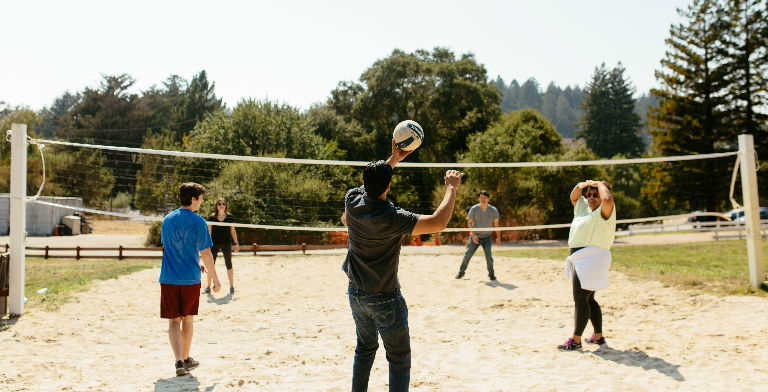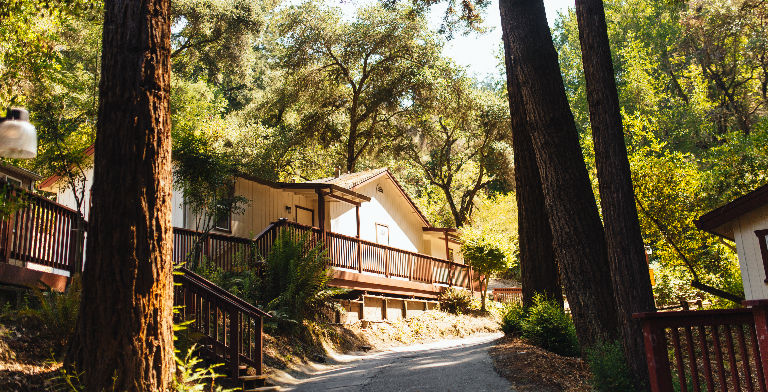About Relapse
About Substance Abuse Relapse
Overcoming the devastation of addiction is a tremendous achievement that requires strength, perseverance, and hope. Anyone who demonstrates the courage to get help and the dedication to complete an addiction treatment program at a rehab center is worthy of respect and admiration.
Unfortunately, completing rehab for an addiction, which is known clinically as a substance use disorder, is just one phase in a long process. Unlike some other diseases, addiction cannot be cured. Instead, successful recovery from addiction involves learning how to manage one’s symptoms and resist what can, at times, be an intense urge to relapse.
The experienced professionals who staff effective addiction rehab programs understand that preparing an individual for successful recovery is a matter of providing him or her with the skills and strategies that will benefit him or her for years following the completion of treatment. For the individual, maintaining lifelong abstinence from substance abuse is a matter of effectively employing those skills and strategies, adapting and learning new techniques when necessary, and remaining vigilant against the ever-present threats that can push him or her off the path of recovery towards relapse.
Each adult and adolescent who struggles with a substance use disorder will have a unique experience, and each person will also pursue recovery in an intensely personal manner. Understanding general relapse-prevention principles, and learning how to individualize and apply them, can be important elements in a person’s effort to overcome addiction. At The Camp, we work with individuals to teach them those principles, providing the greatest chance for sustained recovery.
Why It Happens
Reasons Why People Relapse
When a person enters rehab for an addiction, one of the early lessons that he or she learns is that his or her risk for this disorder was likely influenced by a variety of internal and external factors. So, too, can recovery be threatened by a multitude of characteristics, events, and experiences. Being able to identify these threats and develop strategies to avoid or deal with them can significantly improve a person’s ability to remain in recovery and prevent relapse.
Factors that can push a person to relapse back into addiction are known as triggers. The following are just a few of the many triggers that, if not addressed appropriately, can lead to relapse:
- Being subjected to overwhelming stress or intense pressure
- Developing intense cravings for the drug or drugs that one previously abused
- Losing one’s job or suffering other career-related problems
- Experiencing financial problems
- Getting divorced or separated, or otherwise experiencing the end of a relationship
- Dealing with other types of loss, trauma, and/or grief
- Going through a major life change, such as relocating to a new city or starting a new job
- Becoming overconfident in recovery and mistakenly believing that occasional substance abuse will no longer put one in long-term jeopardy
- Associating with individuals who abuse alcohol or other drugs
- Encountering acquaintances with whom one previously abused drugs
- Attending events where drug use is prevalent
- Being bored and turning to drugs for excitement
As indicated above, triggers can range from outwardly minor or mundane experiences, such as being bored or running into old friend, through obviously extreme experiences such as losing one’s job or suffering the loss of a loved one. Some people will have no problem staying in recovery through many of these experiences, only to be sent into a downward spiral by an occurrence that they believed would pose little or no threat. This unfortunate reality points to the necessity of remaining vigilant and practicing effective relapse-prevention skills before they are needed.
Prevention
How to Prevent Relapse
No effort or series of efforts can guarantee that a person will not experience an addiction relapse, but proactively taking the following steps can significantly improve the likelihood that a person will be able to remain strong in recovery:
- When selecting a rehab center, ensure that you choose one that provides thorough discharge planning to prepare you for life after treatment.
- Collaborate with the members of your rehab team to ensure that the discharge plan reflects your strengths and needs and addresses your short- and long-term goals.
- If your rehab center provides an alumni program, aftercare services, or other follow-on options, plan to participate if at all possible.
- Find and join a recovery support group in or near your community. Take advantage of all opportunities to develop strong ties within the recovery community.
- Get a small group of friends and/or family members to serve as an informal personal support network. These individuals can help you to monitor your continued progress, identify red flags that you may not have seen, and provide ongoing emotional support.
- Do not neglect your physical health. Follow a healthy nutrition plan and get appropriate amounts of exercise.
- Get organized. Plan your days to ensure that you do not have empty hours that can tempt you back into substance abuse.
- Take up a sport, get a hobby, do volunteer work, or find other productive pursuits for your leisure hours.
- Associate with positive and supportive people, and avoid individuals whose words and/or actions can threaten your recovery.
- Get help when you need help. From a few additional sessions with a therapist up to re-entering a treatment program, find the type and level of care that you need, and commit to seeing it through. You are worth the effort.
Also, it is important to remember that if you do relapse, that does not mean that you have failed, or that your past efforts have been wasted. Mistakes, slipups, and other setbacks are part of life. If you focus on the fundamental principles that you learned while in treatment, you can prevent a temporary complication from evolving into a long-term problem.
For more information about preventing or recovering from relapse, or for answers to any questions that you may have about any aspect of rehab at The Camp, please contact us. We are conveniently located to the San Jose & Santa Cruz, CA areas, and we look forward to speaking with you and helping you determine if The Camp is the perfect place for you or for your loved one to receive treatment.
















